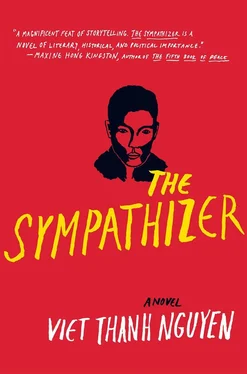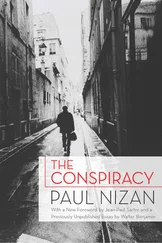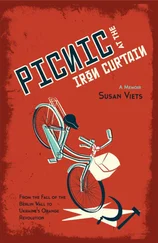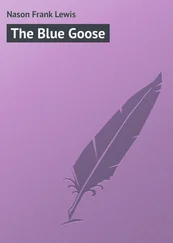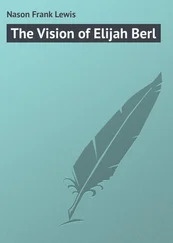I photographed the article with the Minox mini-camera that was finally finding some use. For the last few weeks, I had been photographing the General’s files, all of which I had access to as his aide-de-camp. Ever since my return from the Philippines, I had been unemployed except for this considerable pro bono work done for the General, the Fraternity, and the Movement. Even secret armies and political fronts needed clerks. Memos must be written; documents filed; meetings called; flyers designed, printed, and distributed; photos taken; interviews scheduled; donors found; and, most important for my purposes, correspondence taken and mailed, then received and read before it was handed over to the General. I had photographed the General’s complete order of battle, from the company here to the battalion in Thailand, from the Fraternity’s public parades to the Movement’s private maneuvers, as well as the communiqués between the General and his officers in the Thai refugee camps, led by a landlocked admiral. Not least, I photographed the statements of the bank accounts where the General stashed the modest funds for the Movement, raised in small donations from the refugee community, the revenues of Madame’s restaurant, and a handful of respectable charitable organizations that had donated to the Fraternity for the relief of sad refugees and sadder veterans.
All this information had been packaged into a parcel dispatched to my Parisian aunt. The parcel’s contents were a letter and a chintzy souvenir, an automatically rotating snowball featuring the Hollywood sign. This gift required nine-volt batteries, which I included and which I had hollowed out. Into each I inserted a cartridge of Minox film, a more sophisticated method than how my courier in Saigon traded information with me. When Man first told me of my courier, I had immediately conjured up one of those supple beauty queens for which our country was deservedly famous, white as refined sugar on the outside, scarlet as sunrise on the inside, a Cochin-Chinese Mata Hari. What showed up at my door every morning was an aging auntie, the lines on her face promising more secrets than the lines on her palms, hawking gobs of betel juice as well as her specialty, sticky rice wrapped in banana leaves. I bought a packet for breakfast every morning, and in it there might or might not be a message, rolled and wrapped in plastic. Likewise, in the small wad of folded piastres I paid her with, there might or might not be a cartridge of film or a message of my own, written invisibly with rice water on cement paper. The only flaw in this method was that auntie was a terrible cook, her sticky rice a ball of glue that I had to swallow, lest the maid find it in my garbage and wonder why I was buying what I would not eat. I complained to auntie once, but she cursed me at such length and with such inventiveness I had to check both my watch and my dictionary. Even the cyclo drivers hanging around the General’s villa for fares were impressed. You better marry that one, Captain, a driver missing a left arm called out. She won’t be single for long!
I winced at the memory and poured myself a drink from the bottle of fifteen-year-old scotch the General kept in his drawer. Given that I was not being paid, the General kept me happy, and admittedly dependent, with generous gifts of fine and not-so-fine liquor from his ample supply. I needed it. Written invisibly in the letter were the dates and details of Bon’s itinerary and those of the grizzled captain and affectless lieutenant, from their airplane tickets to the location of the training camp. The information was no different in substance from what I had dispatched through auntie, the classified logistics of operations that would inevitably lead to devastating ambushes. Newspaper articles would report the number of American or republican soldiers dead or wounded, but they were as abstract as the faceless dead in history books. I could write these dispatches with ease, but the one about Bon had taken me all night, not because of the amount of words, but because he was my friend. I’m coming back, too, I wrote, even though I had not yet figured out how I would do that. The better to report on the movement of the enemy, I wrote, even though what I really intended was to save Bon’s life. This feat I also had no idea how to accomplish, but ignorance had never stopped me from taking action before.
With no idea how I would manage to betray Bon and save him at the same time, I searched for inspiration in the bottom of a bottle. I was sipping from my second tumbler of scotch when the General entered. It was a little past three, the routine time of his return from Madame’s restaurant after its midday rush. He was, as usual, irritated from his hours manning the cash register. Former soldiers would salute him, a sign of respect that nevertheless reminded him of the stars he was not wearing, while the occasional snide civilian, always a woman, would say, Weren’t you that general? If she was very snide, she would leave him the tip, the typically grand sum of one dollar, our nod to what we considered a ludicrous American practice. Thus the General would arrive in the afternoons at the liquor store, as he did today, throw a handful of crumpled dollar bills on his desk, and wait for me to pour him a double. Reclining in his chair, he would sip the scotch with closed eyes and sigh dramatically. But today, instead of reclining, he leaned forward at his desk, tapped the newspaper, and said, Did you read this?
Not wanting to deprive the General of the opportunity to fulminate, I said I had not. He nodded grimly and began to read excerpts out loud. “Rumors abound about this Fraternity and what its true purpose is,” the General said, face blank and voice even. “The overthrow of the communist regime is clearly its objective, but how far is it willing to go? While the Fraternity asks for donations to help refugees, these funds may possibly be going toward a Movement of armed refugees in Thailand. Rumors are that the Fraternity has invested in certain businesses whose profits it reaps. The most disappointing aspect of the Fraternity is the false hope it peddles to our countrymen that we can one day take our country back through force. We would be better off if we pursued reconciliation peacefully, in the hopes that one day we in exile can return to help rebuild our country.” The General folded the newspaper and laid it back on his desk in the exact same position it had occupied before. Someone’s been feeding this man some reliable information, Captain.
I sipped my scotch to disguise the fact that I was swallowing the saliva that had pooled in my mouth. We have leaks, sir, just like we did at home. Look at that picture. All those men know something about what’s going on. All Sonny had to do was walk around with a bucket catching one drop here and another drop there. Soon enough he’d have a glass or two of information.
You’re right, of course, the General said. We can keep mistresses but we can’t keep secrets. This — he tapped the newspaper — sounds wonderful, doesn’t it? Reconcile, return, rebuild. Who wouldn’t want that? And who would benefit the most? The communists. But for us, the greater likelihood if we return is a bullet in the head or a long stay in reeducation. That’s what the communists mean by reconciliation and rebuilding, getting rid of people like us. And this newsman is peddling this leftist propaganda to poor people who are desperate for any kind of hope. He’s getting more troublesome, don’t you think?
Of course, I said, reaching for the bottle of scotch. Like me, it was half empty and half full. Newsmen are always troublesome if they’re independent.
How do we know he’s just a newsman? Half of the newsmen in Saigon were communist sympathizers, and a good percentage of them were just communists. How do we know the communists didn’t send him here years ago with exactly this plan in mind, to spy on any of us who made it here and undermine us? You knew him in college. Did he display these sympathies back then? If I said no and the General later heard otherwise from someone else, I would be in trouble. The only answer was yes, to which the General said, As my intelligence officer, you’re not showing much intelligence, are you, Captain? Why didn’t you warn me of this when I met him? The General shook his head in disgust. Do you know what your problem is, Captain? I had a rather long list of my problems, but it was better to simply say I had no idea. You’re too sympathetic, the General said. You didn’t see the danger in the major because he was fat and you took pity on him for that. Now the evidence shows that you’ve been willfully blind to the fact that Sonny is not only a left-wing radical but potentially a communist sleeper agent. The General’s gaze was intense. My face started to itch but I did not dare scratch. Something may need to be done, Captain. Don’t you agree?
Читать дальше
